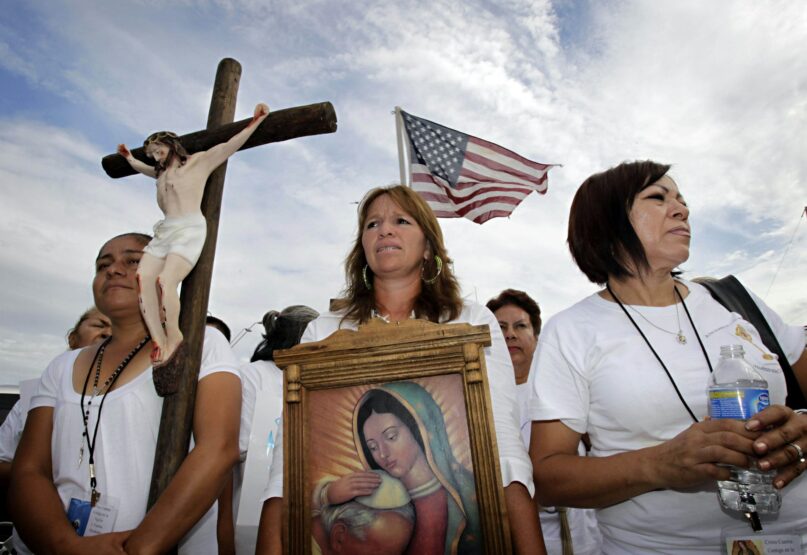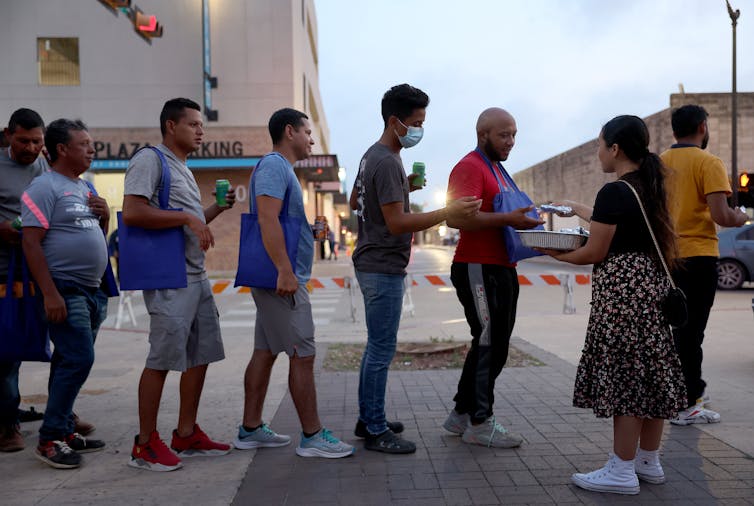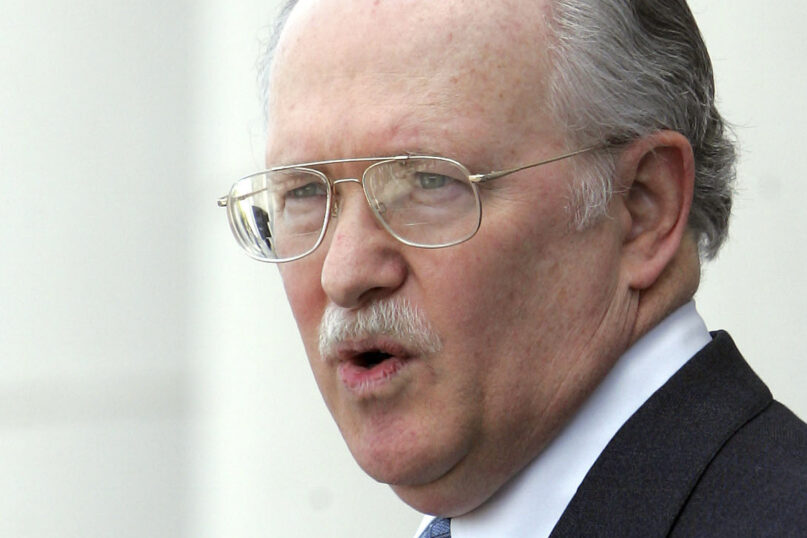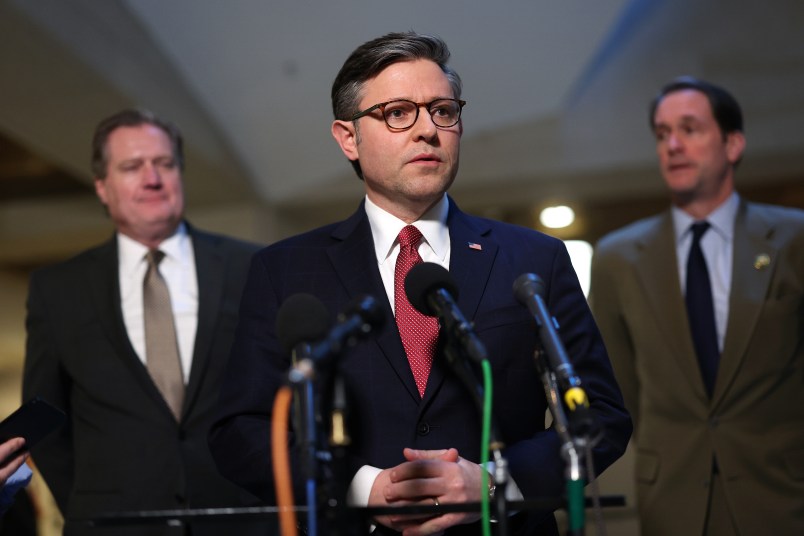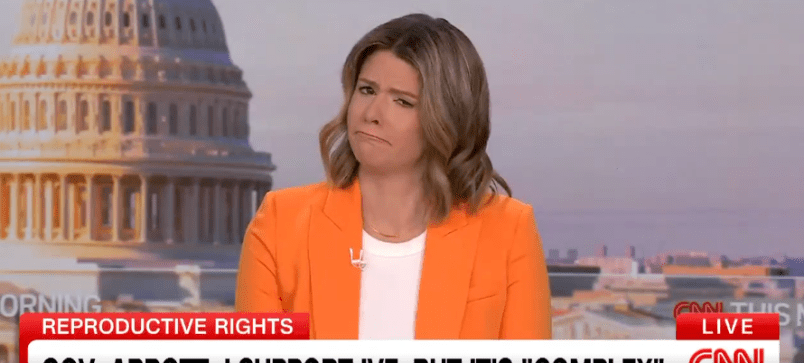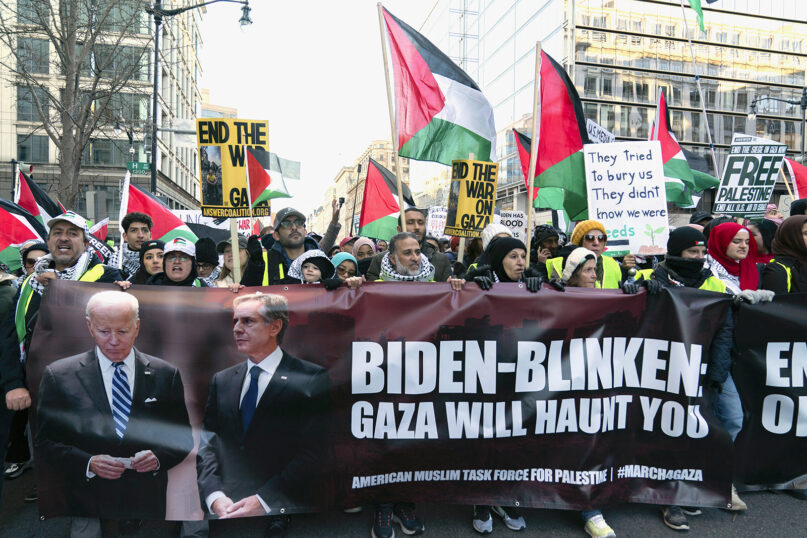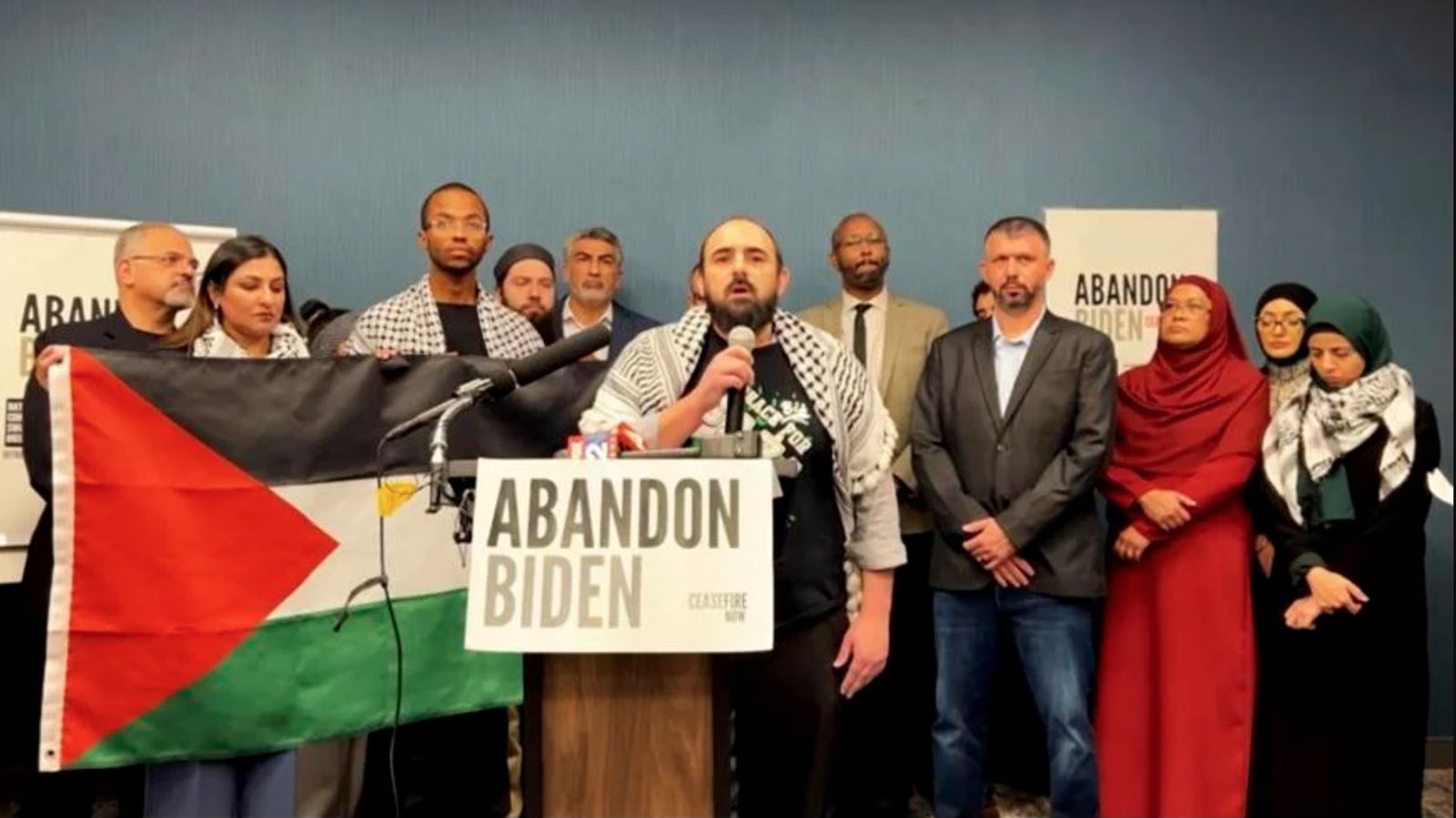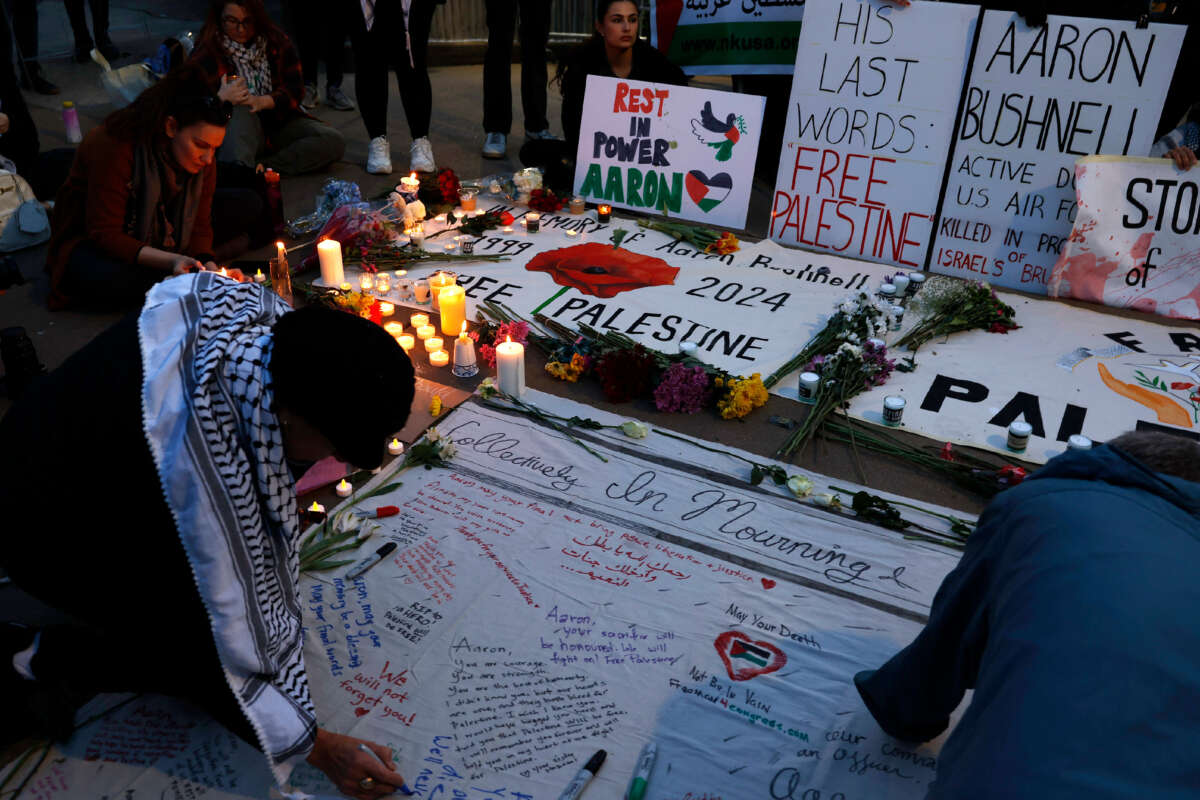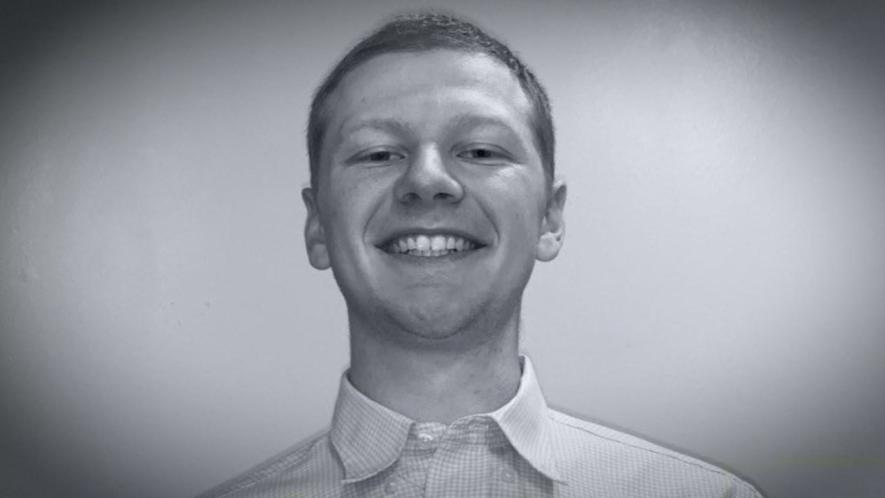At the Last Supper, Jesus said, 'Do this in memory of me.' He did not say, 'Be celibate.'
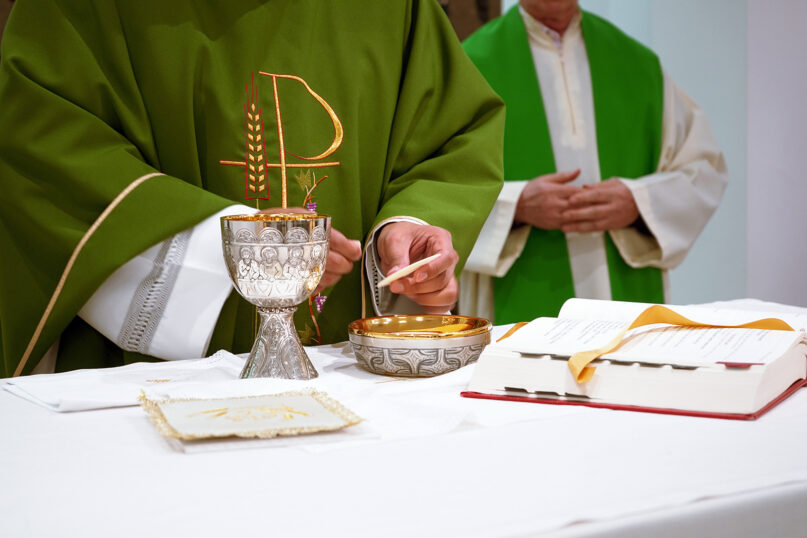
(Photo by Lennon Caranzo/Unsplash/Creative Commons)
By Thomas Reese
(RNS) — Without the Eucharist, it seems obvious: There is no Catholic Church. It feeds us as a community of believers and transforms us into the body of Christ active in the world today. But according to Catholic theology, we cannot have the Eucharist without priests.
Sadly, in many parts of the world there is a Eucharistic famine, precisely because there are no priests to celebrate the Eucharist. This problem has been going on for decades and is only getting worse.
Last year, the Vatican reported that while the number of Catholics worldwide increased by 16.2 million in 2021, the number of priests decreased by 2,347. As a result, on average there were 3,373 Catholics for every priest in the world (including retired priests), a rise of 59 people per priest.
The Center for Applied Research in the Apostolate reports that in 1965 there were 59,426 priests in the United States. In 2022, there were only 34,344 . Over much the same period, the number of Catholics has increased to 72.5 million in 2022, from 54 million in 1970.
Priests are also getting older. In 2012, a CARA study found that the average age of priests rose to 63 in 2009, from 35 in 1970. When a Jesuit provincial, the regional director of the order, told Jesuits at a retirement home not long ago that there was a waiting list to get in, a resident wag responded, “We are dying as fast as we can.”
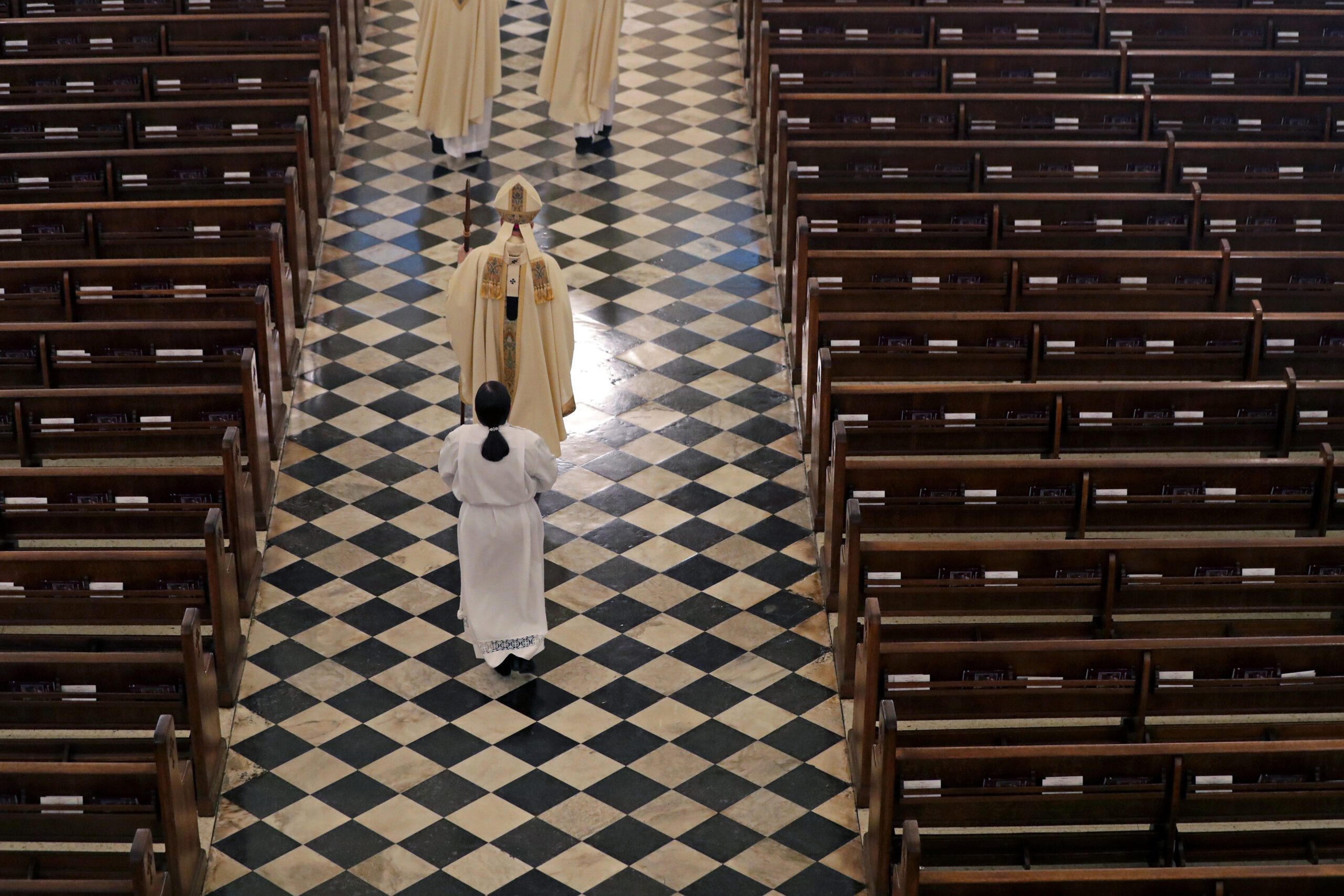
Archbishop Gregory Aymond conducts the procession to lead a livestreamed Easter Mass in St. Louis Cathedral in New Orleans, April 12, 2020. (AP Photo/Gerald Herbert, File)
In many rural areas of the United States, priests no longer staff parishes but simply visit parishes once a month or less frequently. In 1965, there were only 530 parishes without priests. By 2022, there were 3,215 according to CARA.
All of these numbers are only going to get worse.
RELATED: The Synod on Synodality called for better liturgy. Will anyone listen?
In the early 1980s, the archbishop of Portland came to a rural parish to tell them they would no longer have a priest and that most Sundays they would have a Scripture service, not a Mass.
A parishioner responded, “Before the Second Vatican Council, you told us that if we did not go to Mass on Sunday, we would go to hell. After the council, you told us that the Eucharist was central to the life of the church. Now you are telling us that we will be just like every other Bible church in our valley.”
Many American bishops have tried to deal with the shortage by importing foreign priests to staff parishes, but Vatican statistics show that the number of priests worldwide is also decreasing. New U.S. immigration rules are also going to make it more difficult to employ foreign priests in the United States.
The Catholic hierarchy has simply ignored the obvious solution to this problem for decades. Under Popes John Paul II and Benedict XVI, the discussion of married priests was forbidden. Leaders in the hierarchy tended to live in large cities where the shortage had less of an impact than in rural areas.
Even Pope Francis, who expressed his respect for married clergy in Eastern Catholic churches, did not respond positively when the bishops meeting at the Synod for the Pan-Amazon Region voted 128-41 to allow married deacons to become priests. At the recent meeting of the Synod on Synodality, the issue of married priests was hardly mentioned.
RELATED: Synod on Synodality report is disappointing but not surprising
The decline in the number of vocations has many explanations depending on whom you ask. Conservatives blame the reforms coming out of the Second Vatican Council.
Certainly, the council did emphasize the holiness of marriage and the vocation of the laity. Priests seemed less special after the council. Prior to the council, only a priest could touch the consecrated host. Today, lay ministers of Communion do so at nearly every Mass.
However, sociologists note that vocations decline when families have fewer children and when children have greater educational and employment opportunities.
Thus, in a family with only one or two children, the parents prefer grandchildren to a son who is a priest. And, in the past, priests were the most educated person in the community and therefore had great status. Today, parishes can have many lawyers, doctors and other professionals, and becoming a priest does not confer the status it used to.
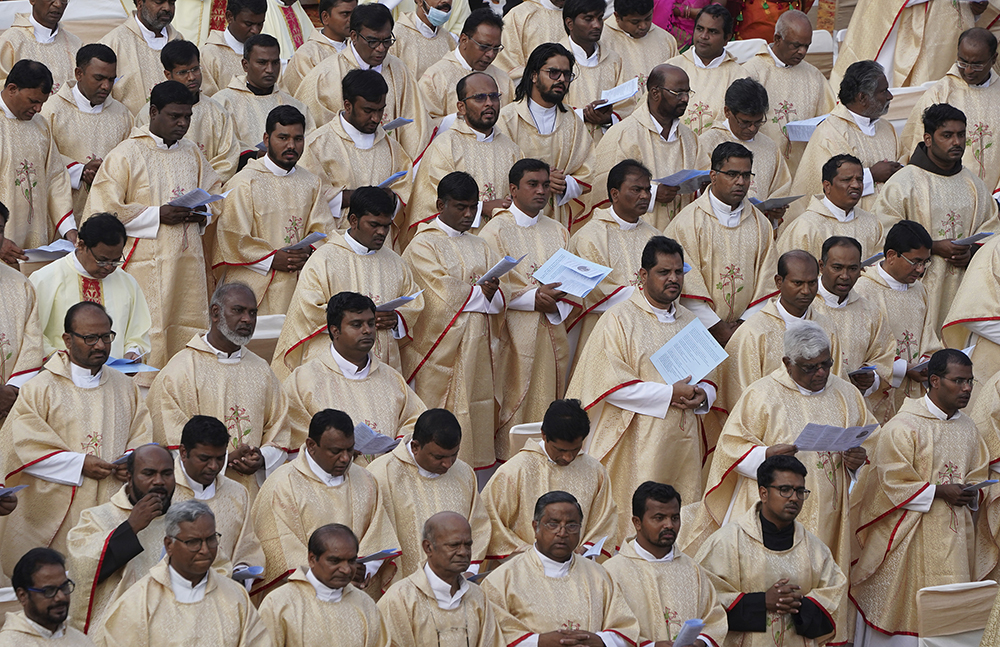
Catholic priests participate in a thanksgiving Mass for the elevation of Archbishop of Hyderabad Anthony Poola to cardinal, at St. Mary’s high school in Hyderabad, India, Thursday, Sept. 15, 2022. ( AP Photo/Mahesh Kumar A.)
Those who point to the continued increases in vocations in Africa and Asia need to listen to the sociologists. Already, there are fewer vocations in urban areas of India where families have fewer children and more opportunities for education are available. Africa and Asia are not the future of the church. They are simply slower in catching up with modernity.
Anticlericalism has also impacted vocations, first in Europe and now in America. Priests are no longer universally respected. They are often treated with ridicule and contempt. Being a priest is countercultural.
Despite this, there are still many Catholics who are willing to take up this vocation. People are being called to priesthood, but the hierarchy is saying no because those who feel called are married, gay or women.
A 2006 survey by Dean Hoge found that nearly half of the young men involved in Catholic campus ministry had “seriously considered” ministry as a priest, but most also want to be married and raise a family.
Having a married clergy will not solve all the church’s problems, as we can see in Protestant churches. Married ministers are involved in sex abuse, have addictions and can have the same clerical affectations as any celibate priest. But every employer will tell you that if you increase the number of candidates for a job, the quality of the hire goes up.
Nor is allowing priests to marry simply about making them happier. For the Catholic Church it is a question of whether we are going to have the Eucharist or not. At the Last Supper, Jesus said, “Do this in memory of me.” He did not say, “Be celibate.”
